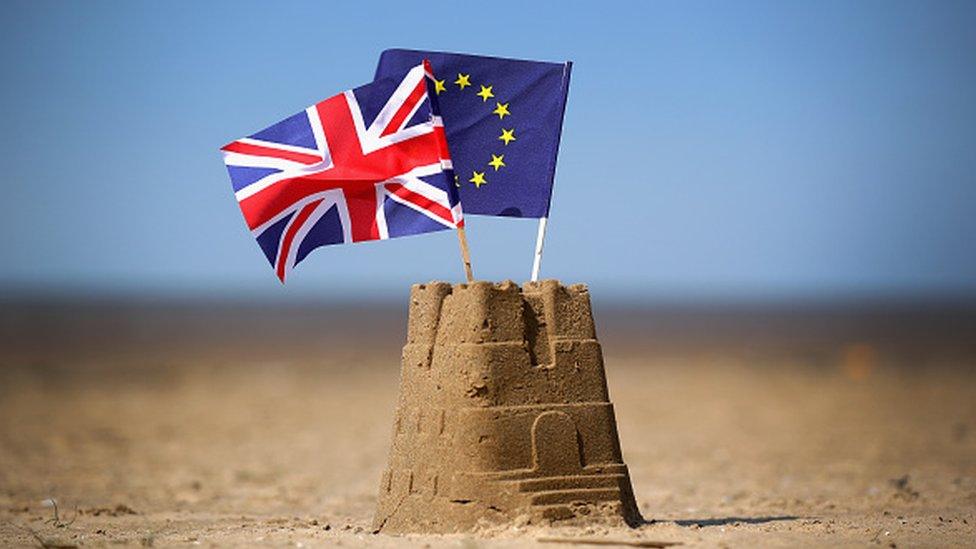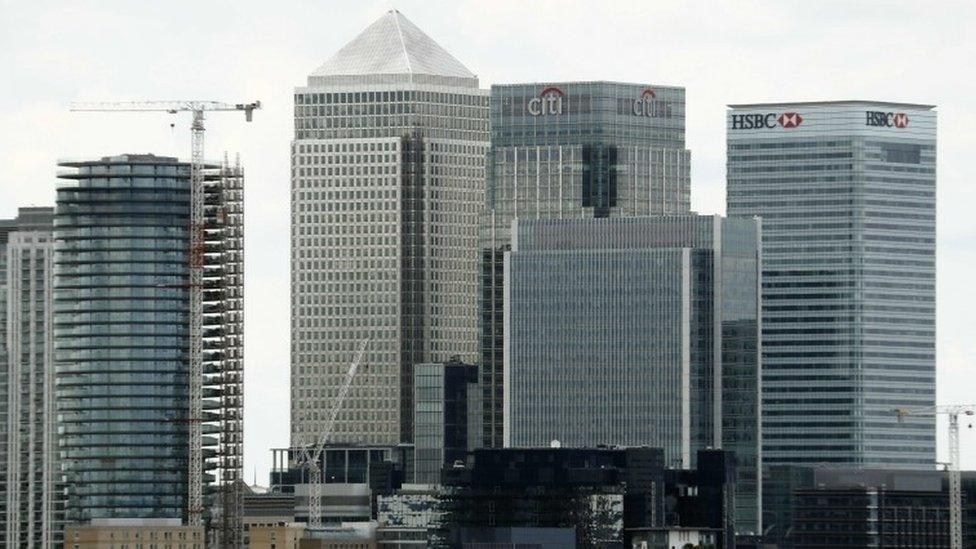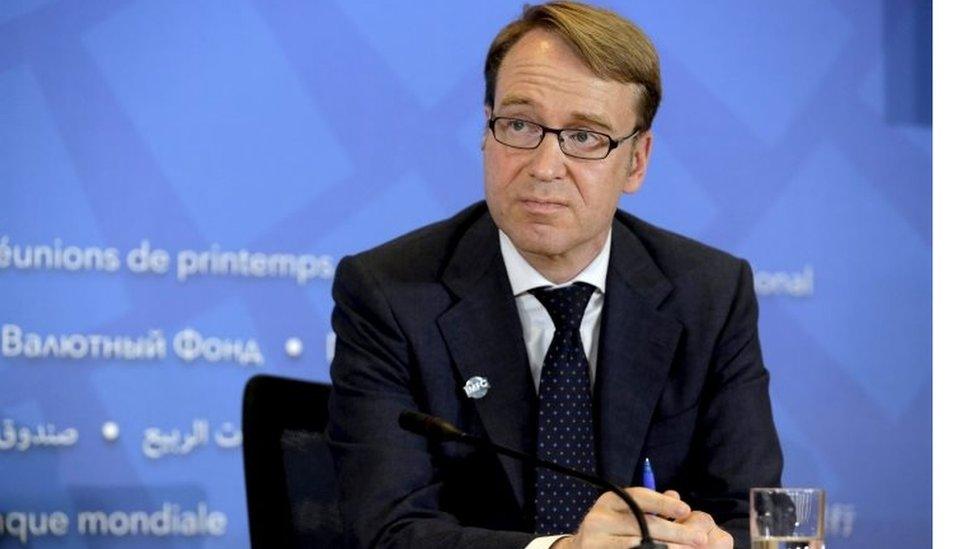Finance sector 'paid £71.4bn in tax'
- Published

The UK's financial services sector contributed £71.4bn in tax last year, according to a report on behalf of the City of London.
The total, which was the highest in the report's nine-year history, accounted for 11.5% of the UK's total tax receipts.
The report highlights the potential hit to public finances if Brexit restricts access to the EU's single market.
Nearly a quarter of turnover "went straight to the public coffers".
The report, by accountancy giant PwC, said the record total was due in part to corporate tax reforms, which delivered an extra £8.4bn, and the bank levy, which resulted in lenders paying out £3.4bn.
However, the sector's contributions hang in the balance ahead of Brexit negotiations with the EU, said Andrew Kail, head of financial services at PwC.
"The report highlights an increasing reliance on tax receipts from banking and insurance firms," he said.
"With the added potential adverse impacts of Brexit on the sector, the question arises as to whether the current levels of tax contribution are sustainable."
Passporting rights
Financial firms in the UK have become increasingly concerned about their ability to trade with Europe after Brexit.
They are waiting to discover whether the UK can hold on to "passporting" rights, which allow lenders to trade freely across the EU.
The financial services sector currently employs 1.1 million people in the UK, or 3.4% of the national workforce.
Mark Boleat, policy chairman of the City of London Corporation, said access to skilled EU workers, the single market and financial services directives were among the areas of concern.
"As one of the UK's biggest service exporters, it's understandable the sector also contributes a considerable amount of tax. Despite this, the sector arguably stands most to lose as negotiations loom," he said.

Brexit uncertainty
On Tuesday, Chancellor Philip Hammond said the UK would weigh up the "costs and benefits" of continuing to pay money to the European Union for access to the single market after it leaves the bloc.
Last week, the Brexit Secretary, David Davis, said paying for access was a possibility.
Mr Hammond said: "What he [Mr Davis] said was we wouldn't rule out the possibility of some ongoing contribution in some form if we have an ongoing relationship.
"And that would be something that we'd have to look at, looking at the costs, and looking at the benefits, and making a decision based on what's in the best interest of the British taxpayer."
In a speech at a tax event on Tuesday, Jane Ellison, Financial Secretary to the Treasury said:
"We know that there will be a period of adjustment as we gear up to leave the EU. And we know that there is real uncertainty in this sector about what comes next."
She said the government would be "pressing for a deal that will help our vital financial services sector to be every bit as successful after our withdrawal as before", adding that Brexit would mean "new opportunities".
- Published23 October 2016

- Published19 September 2016
